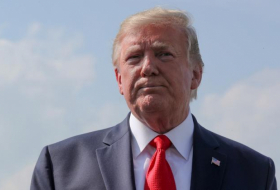The plan, which will be announced on Sunday by shadow Brexit secretary Keir Starmer, would force the government to honour what is to date only a political commitment to avoid a hard border solution, once the UK leaves the EU in a year’s time.
In an interview with the Observer, Starmer said: “At the end of last year, the EU and UK government made a political agreement that there would be no hard border in Northern Ireland.
“However, the content of the withdrawal agreement is not legally binding. It is a political document subject to negotiation and will not have legal force unless and until it is ratified – which is by no means a done deal.”
The move represents another headache for Theresa May as the withdrawal bill and other Brexit legislation struggle to make their way through parliament.
Labour’s attempt to work with other parties reflects a genuine fear that negotiations on Brexit could founder on the border issues, leaving the future of cross-border trade in doubt. Any prospect of a hard border is also likely to have a politically destabilising effect.
The government is also facing defeats in the Lords, and then knife-edge battles in the Commons, on issues such as membership of the customs union and single market, on which amendments are also likely to be passed in the upper house after Easter.
Starmer said there had been signs that the government had been backsliding on its commitment to having no infrastructure on the border because it could not find another solution, other than remaining in a customs union, which Tory MPs will not accept.
As a result, it was vital to hold it to its word to prevent what would be a disastrous economic and political outcome and a threat to peace. “The point has now come where it is so serious that we have to enshrine this in law.”
While senior Tory MPs support the Labour move as a policy, they say the best chance of success would be if such a motion were jointly tabled by members of all parties, and not just Labour.
“You need to do this on a cross-party basis,” said one prominent Labour MP. “Tory MPs will be reluctant to defeat the government by backing a Labour amendment. They would not do it because they would be accused of working to put Jeremy Corbyn in Downing Street.”
While the EU signed off last week on plans for a 21-month transition period after Brexit day on 29 March next year – during which Britain will remain effectively in the EU – the main sticking point on a final deal remains the unsolved problem of the Irish border. If there is not a final deal, there will also be no transition deal.
May has said there will be no hard border between Northern Ireland and the Republic. But she has come up with no clear or convincing plan about how to prevent the flow of goods from Northern Ireland into the Republic and vice versa, once the UK is outside the customs union and single market.
Starmer added: “I have not yet met anybody credible in Northern Ireland or the rest of the EU who thinks that there is a solution without us being in a customs union with the rest of the EU.”
More about: #Brexit
















































